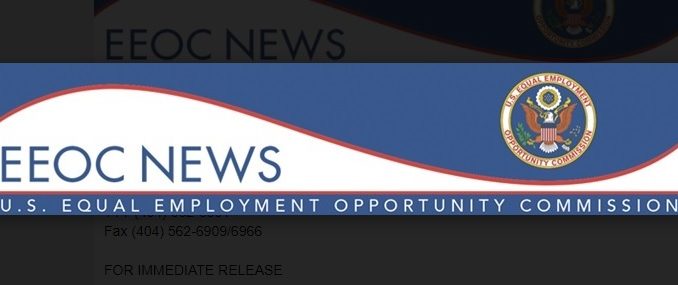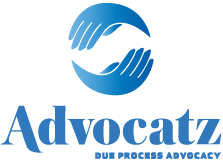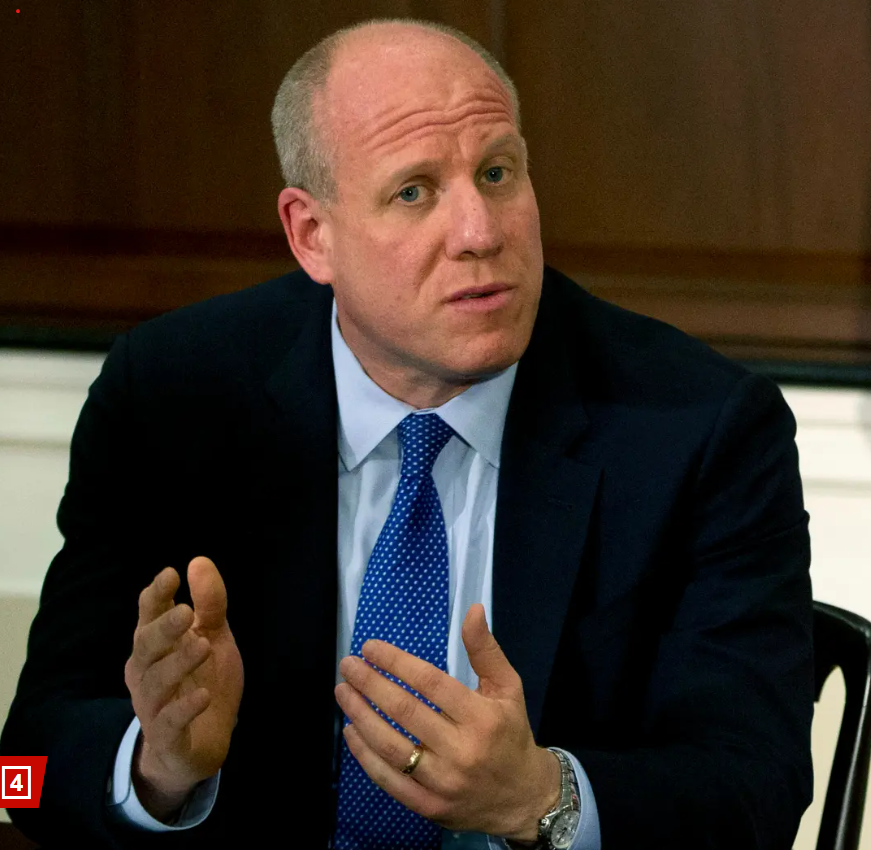
Atlanta District Office
100 Alabama Street, S.W., Suite 4R30 Regional Attorney
Atlanta, GA 30303 (470) 531-4831
TTY (404) 562-6801
Fax (404) 562-6909/6966
FOR IMMEDIATE RELEASE
June 6, 2022
EEOC SUES DEL FRISCO’S OF GEORGIA
FOR FIRING EMPLOYEE BECAUSE OF HER RELIGION
Atlanta Restaurant Scheduled Employee to Work in Violation of Her Religious Beliefs,
Then Fired Her for Not Working, Federal Agency Charges
ATLANTA – Del Frisco’s of Georgia, LLC, a restaurant located in Atlanta, violated federal law by firing a server when her religious beliefs conflicted with her work schedule, the U.S. Equal Employment Opportunity Commission (EEOC) charged in a lawsuit it filed today.
According to the EEOC’s suit, beginning in January 2019, the employee requested and was granted an accommodation of not working on Tuesday evenings and Sunday mornings so she could attend prayer and church services. Del Frisco’s scheduled the employee to work on Tuesday, Dec. 31, 2019, in conflict with her existing religious accommodation and her need to attend prayer services that evening. The employee reminded her supervisors of her religious conflict, but she was not taken off the schedule. When the employee did not appear for work on that day, Del Frisco’s fired her.
Such conduct violates Title VII of the Civil Rights Act of 1964, which prohibits discharging an employee because of her religion and requires that sincerely held religious beliefs be accommodated by employers. The EEOC filed suit (Civil Action No. 1:22-CV-2234 MHC JKL) in U.S. District Court for the Northern District of Georgia, Atlanta Division, after first attempting to reach a pre-litigation settlement via its conciliation process. The EEOC is seeking back pay, front pay, compensatory damages and punitive damages for the employee, as well as injunctive relief to prevent future discrimination.
“Federal law requires that employers accommodate the sincerely held religious beliefs of their employees when it is not an undue burden for the employer,” said Marcus G. Keegan, regional attorney for the EEOC’s Atlanta District Office. “Del Frisco’s could have easily continued to accommodate its employee’s religious accommodation of not working on Tuesdays for one evening, but chose to schedule her anyway, and this harsh inflexibility caused her to lose her livelihood. The EEOC stands ready to protect the rights of such employees.”
Darrell Graham, district director of the Atlanta office, said, “The Civil Rights Act of 1964 is meant, in part, to protect the religious pluralism in our country. Del Frisco’s forced its employee into the untenable position of choosing between her job and religious beliefs, and no one should have to make that choice.”
The EEOC advances opportunity in the workplace by enforcing federal laws prohibiting employment discrimination. More information is available at www.eeoc.gov. Stay connected with the latest EEOC news by subscribing to our email updates.
Religious Discrimination
New Compliance Manual Section on Religious Discrimination (1/15/21)
Religious discrimination involves treating a person (an applicant or employee) unfavorably because of his or her religious beliefs. The law protects not only people who belong to traditional, organized religions, such as Buddhism, Christianity, Hinduism, Islam, and Judaism, but also others who have sincerely held religious, ethical or moral beliefs.
Religious discrimination can also involve treating someone differently because that person is married to (or associated with) an individual of a particular religion.
Religious Discrimination & Work Situations
The law forbids discrimination when it comes to any aspect of employment, including hiring, firing, pay, job assignments, promotions, layoff, training, fringe benefits, and any other term or condition of employment.
Religious Discrimination & Harassment
It is illegal to harass a person because of his or her religion.
Harassment can include, for example, offensive remarks about a person’s religious beliefs or practices. Although the law doesn’t prohibit simple teasing, offhand comments, or isolated incidents that aren’t very serious, harassment is illegal when it is so frequent or severe that it creates a hostile or offensive work environment or when it results in an adverse employment decision (such as the victim being fired or demoted).
The harasser can be the victim’s supervisor, a supervisor in another area, a co-worker, or someone who is not an employee of the employer, such as a client or customer.
Religious Discrimination and Segregation
Title VII also prohibits workplace or job segregation based on religion (including religious garb and grooming practices), such as assigning an employee to a non-customer contact position because of actual or feared customer preference.
Religious Discrimination & Reasonable Accommodation
The law requires an employer or other covered entity to reasonably accommodate an employee’s religious beliefs or practices, unless doing so would cause more than a minimal burden on the operations of the employer’s business. This means an employer may be required to make reasonable adjustments to the work environment that will allow an employee to practice his or her religion.
Examples of some common religious accommodations include flexible scheduling, voluntary shift substitutions or swaps, job reassignments, and modifications to workplace policies or practices.
Religious Accommodation/Dress & Grooming Policies
Unless it would be an undue hardship on the employer’s operation of its business, an employer must reasonably accommodate an employee’s religious beliefs or practices. This applies not only to schedule changes or leave for religious observances, but also to such things as dress or grooming practices that an employee has for religious reasons. These might include, for example, wearing particular head coverings or other religious dress (such as a Jewish yarmulke or a Muslim headscarf), or wearing certain hairstyles or facial hair (such as Rastafarian dreadlocks or Sikh uncut hair and beard). It also includes an employee’s observance of a religious prohibition against wearing certain garments (such as pants or miniskirts).
When an employee or applicant needs a dress or grooming accommodation for religious reasons, he should notify the employer that he needs such an accommodation for religious reasons. If the employer reasonably needs more information, the employer and the employee should engage in an interactive process to discuss the request. If it would not pose an undue hardship, the employer must grant the accommodation.
Religious Discrimination & Reasonable Accommodation & Undue Hardship
An employer does not have to accommodate an employee’s religious beliefs or practices if doing so would cause undue hardship to the employer. An accommodation may cause undue hardship if it is costly, compromises workplace safety, decreases workplace efficiency, infringes on the rights of other employees, or requires other employees to do more than their share of potentially hazardous or burdensome work.
Religious Discrimination And Employment Policies/Practices
An employee cannot be forced to participate (or not participate) in a religious activity as a condition of employment.
From the EEOC Newsroom:




Be the first to comment